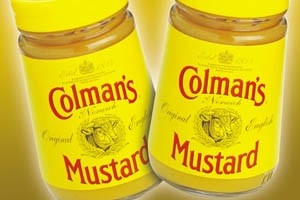Danish government could still be 'mates' with Marmite

Deputy head of the Nutition Division at the Danish Food and Veterinary Administration, Jens Therkel Jensen, told FoodManufacture.co.uk that sales had been stopped because fortified foods with added vitamins, minerals or other substances cannot be marketed in Denmark unless approved by food authorities due to concerns about unduly high levels in diets.
He said the administration had not received an application for the marketing in Denmark of Marmite or similar products.
“What happened in this case was that a local control officer in the city of Aalborg informed the company, Abigail's (which was selling the product in Denmark) that it has added vitamins and that the company should make an application for approval. So the company decided to stop selling the product.”
Food safety issue?
Alongside yeast extract, salt and vegetable extract, Marmite contains Niacin (Vitamin B3) Thiamine (Vitamin B1) Riboflavin (Vitamin B2), Folic Acid (Vitamin B9) and various cobalamins Vitamin B12.
Nutritionist Sarah Schencker said: “Clearly it’s a useful food, with the B vitamins added to it. The average portion size is a very small amount in gram terms. And you’ve got to ask, ‘How much Marmite could you realistically eat [to exceed safe levels]?”
Kate Cook, nuritionist, said she "took the point that food should be in it's natural state, at least that's the ideal, and we should all be growing mung beans on our windowsills. But many people are getting essential nutrients through processed foods, which are part of the modern condition.
"It does seem a bit odd to pick on Marmite, rather than some of the more obvious processed food culprits out there, on a macronutrient level. "
Stuart Shotton, consultancy services manager at FoodChain Europe said there was a lack of consistency regarding the implementation of the current EU regulation (1925/2006) governing the addition of vitamins and minerals to foods.
“In certain member states, where vitamin content goes, there’s a piece of legislation that covers what you can and can’t fortify. The EU regulation as it stands has a provison for maximum levels, but there are none in place now.
“EFSA [the European Food Safety Authority] is working on these, along with the health claims and god knows what else.”
Amending EC regulation 1925/2006, regulation 108/2008, on the addition of vitamins and minerals to food, states: “When a vitamin or a mineral is added to foods, the total amount of the vitamin or mineral present, for whatever purpose, in the food as sold shall not exceed maximum amounts.
“Measures setting that amount and designed to amend non-essential elements of this Regulation by supplementing it shall be adopted in accordance with the regulatory procedure with scrutiny referred to in Article 14(3). The Commission may, to this end, submit a draft of measures for the maximum amounts by 19 January 2009.”
But as yet, common maximum levels have not been forthcoming.
EU vitamin split
In the meantime, Shotton said specific member states (he cited The Netherlands as another example) can set national maximum levels along the lines of the previous EU directive, upon the basis of (to quote the UK Food Standards Agency on the issue) "scientific evidence and safety".
“Essentially, the directive comes down to imterpretation,” Shotton said. “Once you’ve incorporated it into national legislation then you can goldplate it.”
“The EU is split on this issue, as some states have upper levels based upon scientific research. In the UK, for instance, we don’t.”
He added that this meant member states such as Denmark could continue to apply past upper levels for B-vitamin content, until EFSA determined them anew.
Marmite marketing manager Tom Denyard said: "We are sad to hear reports that our devoted fans may not be able to purchase Marmite in Denmark. We’re looking into ways to ensure our Marmite lovers will not be left without their beloved spread. In the meantime we want to remind our fans in Denmark that they can still purchase Marmite from the [online] shop."













